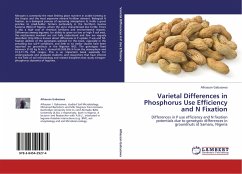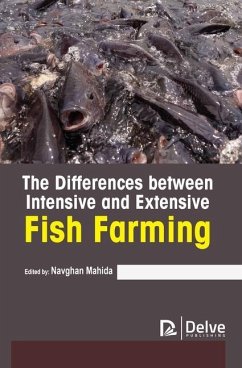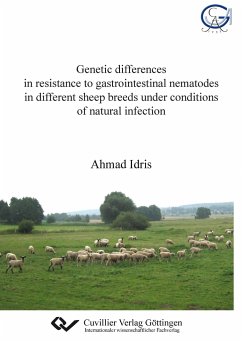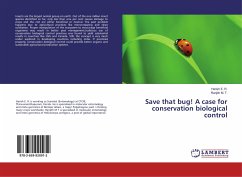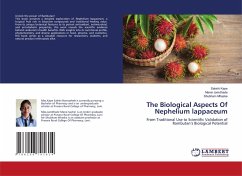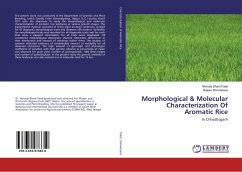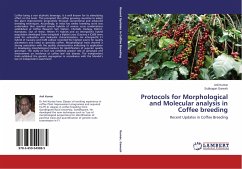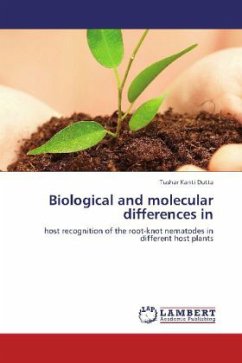
Biological and molecular differences in
host recognition of the root-knot nematodes in different host plants
Versandkostenfrei!
Versandfertig in 6-10 Tagen
32,99 €
inkl. MwSt.

PAYBACK Punkte
16 °P sammeln!
Plant parasitic nematodes are gaining considerable importance worldwide due to their devastating effects on crops leading to major economic downturn.Nematodes are attracted to plant roots via soluble and gaseous attractants produced by root itself or by attendant rhizosphere microorganisms.Just how nematodes move through soil to locate plant roots is poorly understood but is of considerable importance to predict the important role nematode play in soil ecosystems.A significant preference of M. incognita for tomato and M. graminicola for rice was observed in attraction bioassay reassured by pen...
Plant parasitic nematodes are gaining considerable importance worldwide due to their devastating effects on crops leading to major economic downturn.Nematodes are attracted to plant roots via soluble and gaseous attractants produced by root itself or by attendant rhizosphere microorganisms.Just how nematodes move through soil to locate plant roots is poorly understood but is of considerable importance to predict the important role nematode play in soil ecosystems.A significant preference of M. incognita for tomato and M. graminicola for rice was observed in attraction bioassay reassured by penetration and development study in different host plants.Plant volatiles like small lipophilic molecules emitted by root exudates play important roles during the interaction of Meloidogyne sp. with their host plants and they might exert a repellent or allellopathic effect on these nematodes.Western blot analysis showed major differences among the protein profiles of the two nematode species.Thus evolutionary adaption of these root-knot nematodes to their preferred hosts might have led to variability in their gene/protein profile which may contribute to the differential behaviour in host plants.



